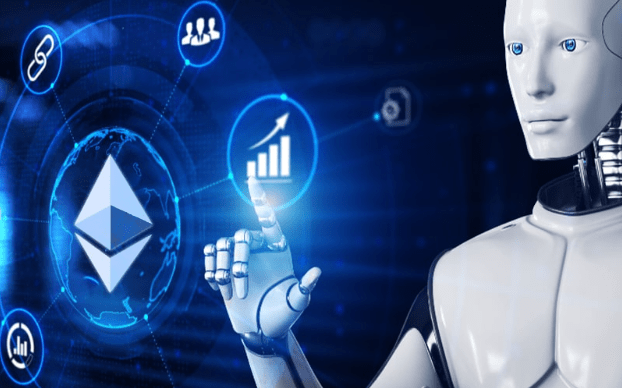The trading of stocks and other financial assets has come a long way since the physical exchange floors of the past. Today, global trading is entirely digital and operates almost at the speed of light, utilizing the latest technology to make transactions in milliseconds.
But in recent years, an innovation has been developed that promises faster and more efficient trading and better decision-making: AI Day trading bots. These intelligent algorithms have the potential to profoundly change the landscape of financial trading and usher in a new era of automated day trading for investors.
Understanding AI Trading Bots
Artificial intelligence (AI) trading bots are automated software programs that use sophisticated algorithms and machine learning to trade financial assets without human intervention. These very powerful systems can process massive quantities of data, make judgments based on a set of rules, and carry out transactions with lightning speed and with pinpoint accuracy.
The driving force behind AI trading bots is to minimize human input as much as possible, replacing
it with the enhanced decision-making capabilities of AI. This includes executing simple buy or sell orders, building complex investment strategies, and designing portfolios tailored to each investor’s risk tolerance.
Growing Popularity
The use of AI trading bots has grown significantly in recent years thanks to increased accessibility to cutting-edge technology and the evolving financial landscape. Investors, whether institutional or retail, have been drawn to AI trading bots for several reasons:
Speed and efficiency
Artificial intelligence trading algorithms can process massive volumes of data in real time, enabling them to make instantaneous choices and trades. This is far beyond the capabilities of human traders, who may take minutes or even hours to make the same decisions.
Emotionless trading
With AI trading, no room for emotional reasoning might cloud judgment. Humans are prone to making decisions based on their gut feelings or being influenced by external factors such as market rumors or events. Trading bots, on the other hand, make decisions purely based on pre-defined parameters and evaluations of data.
Cost reductions
By automating the trading process, financial institutions can significantly reduce the costs associated with human traders, including salaries, office space, and other overheads.
AI Trading Bots in Action
AI trading bots have been gaining traction across the financial markets, with many hedge funds and asset managers already implementing these advanced algorithms into their trading strategies. A survey by the Financial Times in 2020 revealed that approximately 9% of hedge funds made use of AI and machine learning for their investment strategies, up from 5% in 2017.
One high-profile example is the AI-driven hedge fund Numerai, which deploys machine-learning models to trade stocks and other securities. The San Francisco-based firm utilizes a unique mechanism, enlisting the help of data scientists worldwide to develop predictive models based on encrypted data. Numerai has generated significant buzz for successfully deploying AI in trading, raising over $40 million in funding since its inception in 2015.
Challenges and Risks
Although AI trading bots are promising game-changers in the financial world, a few challenges and risks need to be addressed. One of the most significant of these is the risk of over-optimization and selection bias in algorithm creation. For instance, if an AI trading bot is trained using historical
market data exclusively, it may need help adapting to unforeseen market conditions changes.
Another critical concern is the ethical implications of AI trading. As these advanced algorithms can make millions of trades per second and potentially cause market disruptions, their widespread use could lead to increased market volatility and unfair advantages for those with access to the technology.
Furthermore, the security of AI trading bots must be guaranteed, as they are potentially exposed to cyber threats and system failures. A breach in the algorithm’s safety or a fault in its design could lead to severe financial repercussions.
Future Outlook and Latest Developments
As AI technology advances and its potential applications in finance become more apparent, the use of AI trading bots will only continue to grow. One possible future development is the creation of fully autonomous robo-advisors, which can build and manage fully personalized investment portfolios in real-time without human intervention.
A new AI day trading bot called QuoPi.AI has emerged. Taking a different approach to AI Trading, QuoPi’s AI system focuses on providing traders with an edge by accurately predicting market movements using AI algorithms and machine learning. The platform aims to offer a unique and powerful trading tool for investors seeking to capitalize on the potential of AI-driven market predictions.
In conclusion, artificial intelligence has the potential to revolutionize the world of finance, and AI trading bots are at the forefront of this innovation. As these advanced algorithms continue to develop and mature, they promise to fundamentally alter the landscape of financial trading, offering investors unprecedented speed, efficiency, and decision-making abilities.

|
| Help keep news FREE for our readersSupporting your local community newspaper/online news outlet is crucial now more than ever. If you believe in independent journalism,then consider making a valuable contribution by making a one-time or monthly donation. We operate in rural areas where providing unbiased news can be challenging. |
























